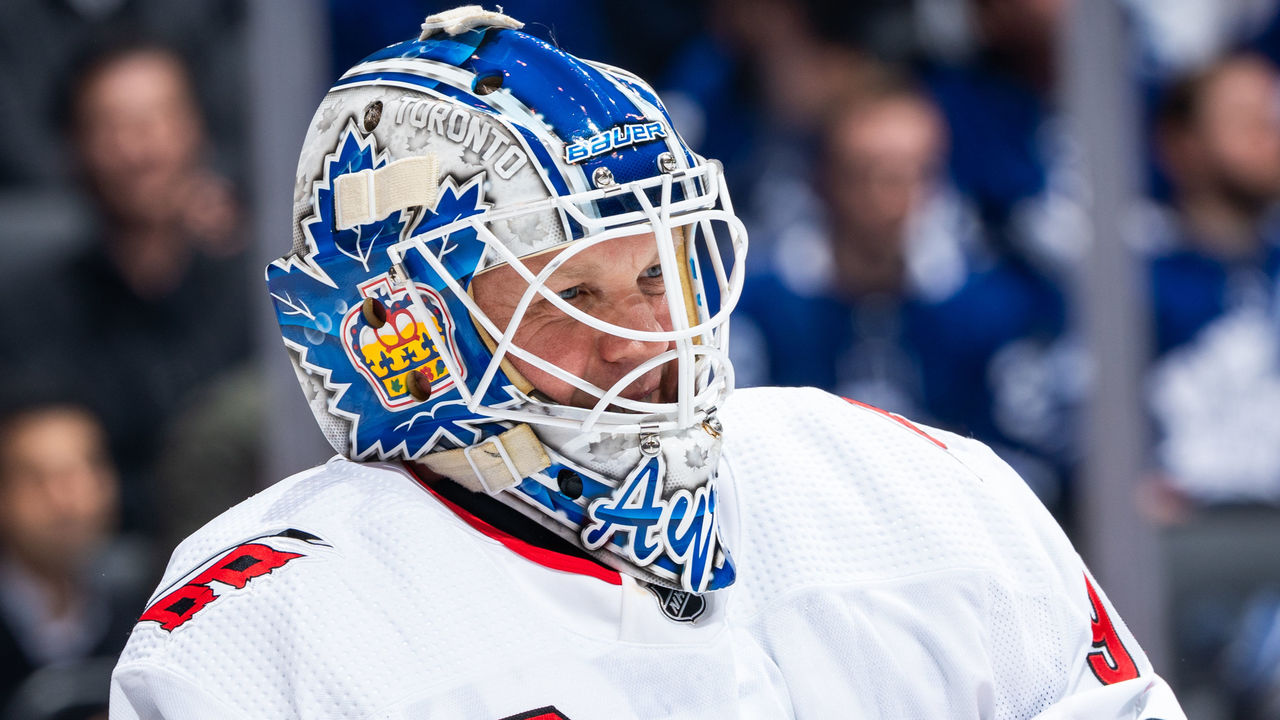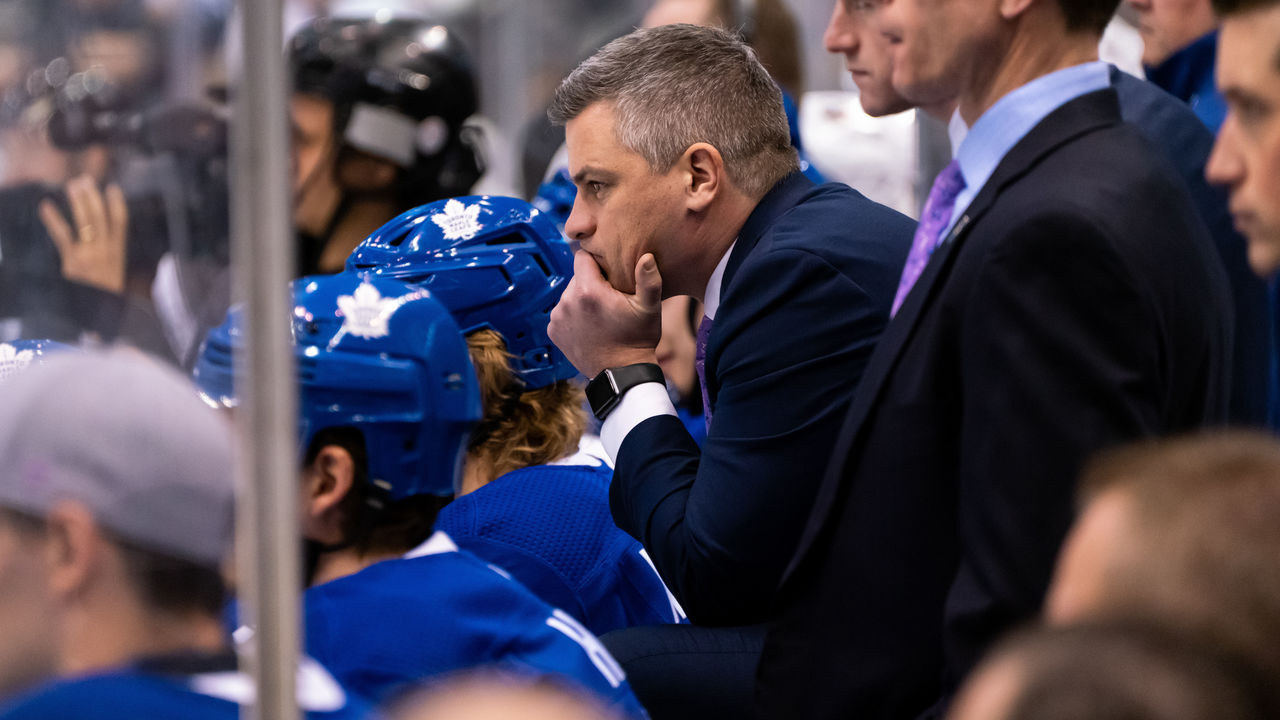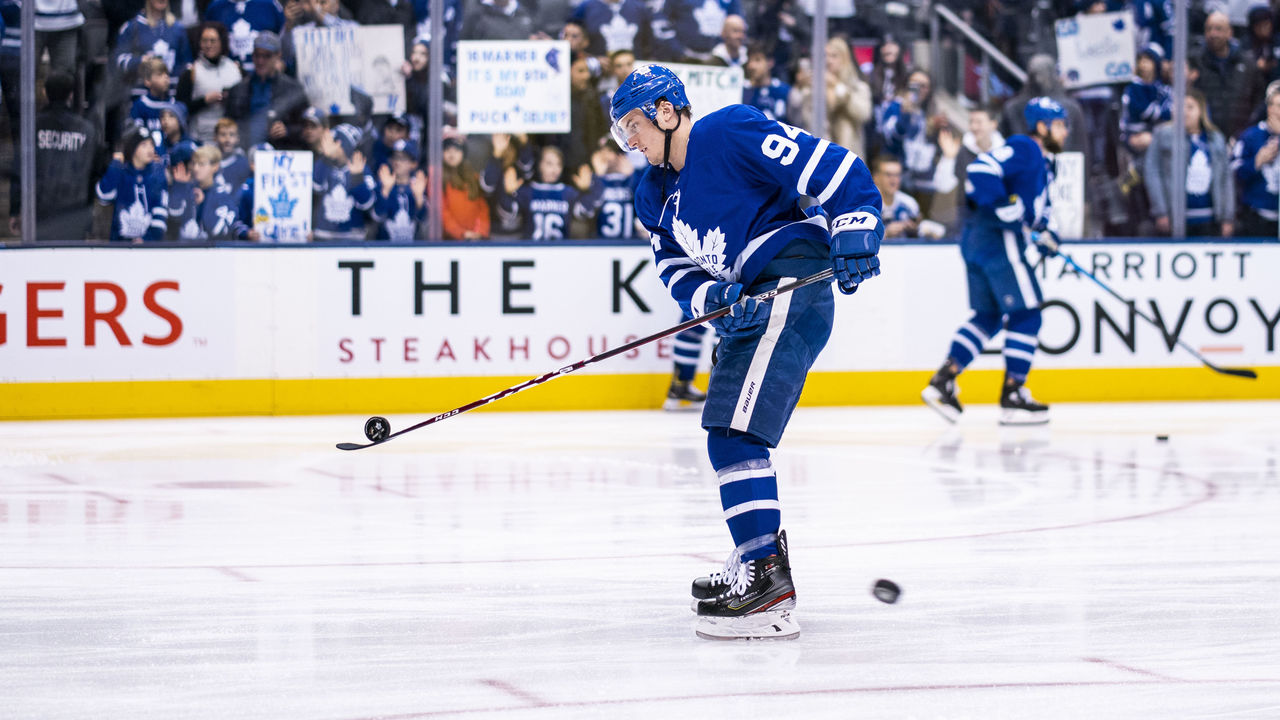Without Hockey: We may never find out how Leafs' puzzling season ends
The NHL season is suspended indefinitely due to the COVID-19 outbreak, and while the league hopes it will eventually be able to resume and conclude the 2019-20 campaign, that's far from a foregone conclusion. This week and next, we're breaking down some of the major storylines that hang in the balance.
Believe it or not, this coming Sunday marks one month since the Toronto Maple Leafs failed to score more than two goals on an emergency backup goalie during an embarrassing 6-3 home loss to the Carolina Hurricanes. For a hockey world currently consumed by the horrors of a pandemic, the images from that wacky Saturday night seem so distant, as if Sunday is instead the one-year anniversary.
Prior to the NHL's decision to press pause on its regular season, that forehead-slapping loss at the hands of David Ayres was arguably the defining moment of the Leafs' puzzling 2019-20 campaign. Now, as we wait for either an abbreviated final stretch or a full cancelation, it's definitely the defining moment for such a turbulent team.

With all due respect to Ayres - the fill-in goalie who milked his 15 minutes of fame before returning to normal life - that's an unfortunate tag for the Leafs. This squad, as flawed as it is dangerous, had significant moments ahead. Even if you hate them (hello, 30 other fan bases), there's no denying Toronto's highs and lows provided tantalizing theater. With a three-point lead on the Florida Panthers (who had a game in hand) at the 70-game mark, the Leafs were on track to clinch the third Atlantic Division playoff spot and meet the Tampa Bay Lightning in the first round. It's quite possible the best, or the worst, was still to come.
Barring injury, it was a foregone conclusion that Auston Matthews, the club's best forward, would reach the 50-goal plateau for the first time in his career. Thanks to his versatility as a sniper, which included adding a lethal one-timer, he had been fooling goalies with ease, bagging 47 goals in 70 games. That gaudy total put him one behind David Pastrnak and Alex Ovechkin for the NHL lead, leaving the door open for a thrilling Rocket Richard Trophy race.
Meanwhile, Morgan Rielly, the club's best defenseman, had just returned from two months of injury rehab. Would Rielly's presence down the stretch have helped Toronto clean up its porous defensive play? Would he have given overworked and struggling goalie Frederik Andersen a little relief in the lead-up to the postseason grind?

The Leafs' season can be sliced neatly into two parts: the end of the Mike Babcock era (9-10-4 record) and the start of the Sheldon Keefe era (27-15-5). If you were to judge them solely on those splits, they are clearly better off with the new guy. However, it's not that simple within the context of the paused season.
General manager Kyle Dubas used the words "Jekyll and Hyde" to describe the Leafs late last month, and he wasn't being overly critical. The team was unpredictable from night to night. Toronto flashed its supreme skill and puck possession capabilities in wins, yet was a complete tire fire defensively in losses. The highest highs, like 11 wins in 13 games from Dec. 7 to Jan. 4, were often preceded and followed by inconsistency and indifference.
What made this year unique was that it was the first official season of Dubas' great all-in-on-skill experiment. With Babcock out and Keefe in, this was finally Dubas' team. Since last offseason, the young GM has doubled down on skill and an offense-first mentality by surrounding his stars - Matthews, Rielly, John Tavares, Mitch Marner, and William Nylander - with Dubas-style players such as Jason Spezza, Alex Kerfoot, Tyson Barrie, Ilya Mikheyev, and Denis Malgin. The only player recently acquired who fits the bill of "rough and tumble" is Kyle Clifford, with whom Dubas had familiarity through a previous working relationship.
Tightening the focus on Dubas' grand plan was the state of the team's blue line. Up until late December, Rielly had been the only everyday defenseman with a contract for next year. Justin Holl, Jake Muzzin, and call-up Rasmus Sandin have since been added to the 2020-21 NHL payroll, but the rest remains in flux because of an impending salary-cap crunch.

If the season is indeed toast, what happens to Barrie, Cody Ceci, and Travis Dermott? Dermott, a restricted free agent, is almost certainly returning, but the others are likely gone via unrestricted free agency. A chunk of Toronto's fan base will be OK with those subtractions, given the poor seasons from both players, yet their departures would leave the back end in a state of greater disrepair than it is now. Up front, the bottom six, which for the most part was underwhelming in 2019-20, is filled with uncertainty, too. The final dozen games of the season might have answered some questions about the future of Toronto's role players and the direction of the team, in general, heading into the playoffs and/or offseason.
Unlike the tidy ending to Ayres' moment in the limelight, though, there is no tidy ending to the story that was being authored by the 2019-20 Leafs. For now, anyway. Unfortunately, a 2-1 win over the Lightning - of all teams - on a random Tuesday in March may turn out to be it. How unsatisfying.
John Matisz is theScore's national hockey writer.